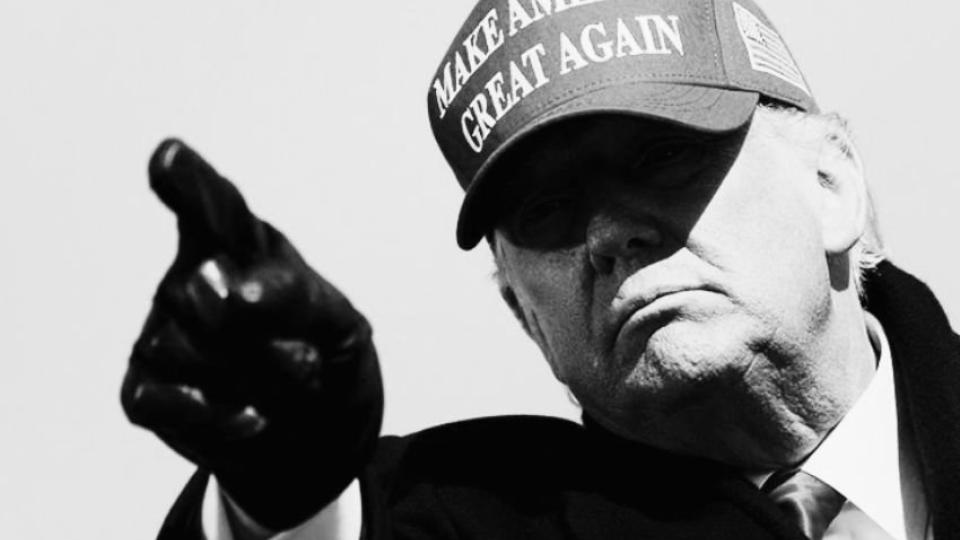Why Trump’s election casts an ominous shadow

Donald Trump’s victory in the 2024 United States presidential election sent a wave of depression around the world, especially because it comes on the heels of right-wing electoral advances in Europe and the ugly anti-immigrant race riots in Britain.
The right-wing parties making gains in Europe are mainly weaponising racism against Muslim refugees.
Trump’s campaign did that and more, unleashing a toxic tornado of white supremacy, misogyny, homophobia, transphobia, climate denialism and whacky conspiracy theories.
His reactionary Make America Great Again (MAGA) movement was built around a suite of right-wing nutjobs, many of whom are now being given top jobs in his administration. Elon Musk’s social media platform X and Rupert Murdoch’s Fox News helped to turbocharge the MAGA campaign, including its bizarre and hateful provocations.
Far-right politicians and groups around the world are emboldened by Trump’s win. That not only poses real dangers for the future; it is already having an impact on people’s lives, as misogyny and racism are normalised in schoolyards and in the streets.
Trump’s win was built on rising inequality and economic insecurity. Republican and Democratic administrations over the past 60 years have presided over a massive transfer of wealth from the working and middle classes to the super rich.
In 1963, the wealthiest families had 36 times the wealth of families in the middle of the wealth distribution. By 2022, they had 71 times the wealth of those in the middle.
There has been a similar process in Europe and even in supposedly egalitarian Australia, where between 1975 and 2022, about $6.8 trillion was shifted from working people to their capitalist bosses.
Alongside this wealth transfer to the capitalists, politicians have overseen a relentless erosion of welfare rights, job security, working conditions and workers’ rights to organise collectively.
The trade union movement has been severely weakened and, more often than not, co-opted into selling and implementing reactionary neoliberal “reforms”.
Added to this is the new cost-of-living crisis, spurred on by the super-rich’s speculative activity, the COVID-19 pandemic and corporate profiteering from the wars in Ukraine and the Middle East.
Global arms expenditure has shot up to a record US$2.43 trillion a year, according to the Stockholm International Peace Research Institute. Military expenditure is a well-recognised driver of inflation.
Despite overwhelming evidence that the capitalist class’s greed is driving inflation globally, governments and central banks have been using interest rate hikes to make the working class suffer.
This has created the ideal conditions for right-wing populists in the rich minority part of the world (the Global North) to whip up campaigns to scapegoat minorities for the pain and insecurity the majority are experiencing.
All the traditional parties of government are guilty of waging a class war on working people, and scapegoating immigrants and refugees.
While voters are punishing incumbent governments, it would be a mistake to reduce Trump and his ilk’s win to an economic backlash.
The right-wing populists’ racist and misogynist ideological campaigns have a significant life of their own. They are shaped not only by the economic pain, inflicted by the last few decades of capitalist neoliberal orthodoxy, but by the grossly unequal global divide, a legacy of more than a century of colonialism and imperialism.
The capitalist ruling classes of colonial and imperial states have relied on white supremacy to justify their systematic robbery of the rest of the world. Those reactionary ideas were deeply enmeshed with centuries-old patriarchal ideology.
They also used these ideologies to brainwash working people, including some of the most exploited and oppressed sections, to believe that they had more in common with their own ruling classes than with the exploited and oppressed in the Global South.
This has been used to justify every imperialist war in which millions of young people have lost their lives fighting to protect the privileges of the world’s richest people.
Since the rebellions and revolutions of the 1960s and 1970s, anti-racist, anti-colonial and feminist movements have challenged — and pushed back — those ideologies.
But the new wave of right-wing populism is a serious attempt to roll back those gains: it is seeking to mobilise younger males as a reactionary vanguard in this “culture war”.
Trump’s election win has cast an ominous shadow in Australia. Under Peter Dutton, the Coalition opposition has taken up more of Trump’s ideological postures. Small extreme right-wing groups made some electoral gains in rural and regional areas in the Victorian local government election.
A Guardian Essential poll on November 19 found a significant minority, bigger among males, was positive about Trump’s election.
While 42% thought the Trump administration will be bad news for the global economy, 38% said it would be positive. There was a similar division about Trump’s prospects of “resolving global conflicts and promoting peace” (41% to 37%) and the US’s influence on global affairs (44% to 37%).
While 42% rated Trump worst on “the global effort to reduce carbon emissions”, 29% were positive.
However, the poll also found that: 74% thought Australia should take steps to protect its democratic institutions from foreign interference; 64% want Australia to reduce carbon emissions “regardless of what America does”; and 62% want “strong rules to limit the power of American tech companies”.
Furthermore, 58% want Australia to “review its commitment to the Aukus defence agreement, including the purchase of nuclear-powered submarines”. Even 45% of Coalition voters want this military deal reviewed.
This poll suggests that if movements for real solutions to neoliberal economic pain combine with anti-war, anti-racist, feminist and pro-environmental movements, they can challenge the rise of right-wing populism.
[Peter Boyle is a member of the Socialist Alliance National Executive.]